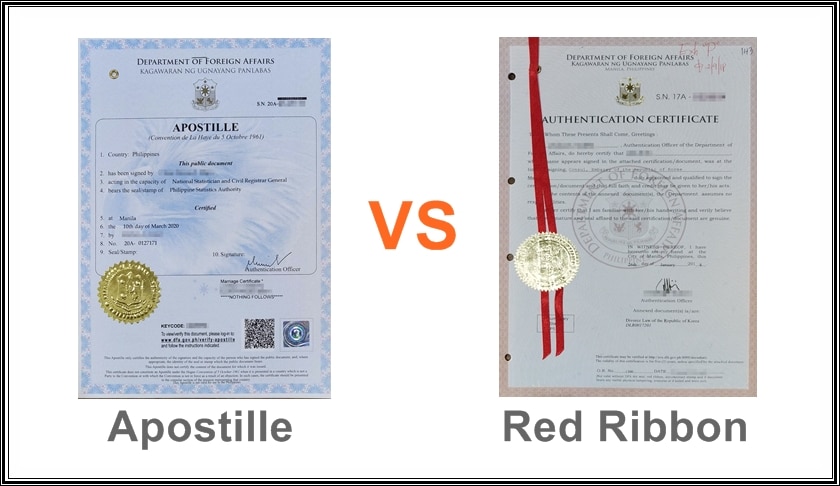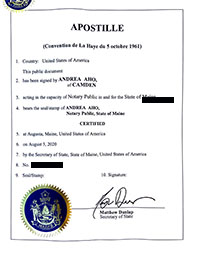Houston Apostille Service-- Get Your Files Apostilled Hassle-Free
Houston Apostille Service-- Get Your Files Apostilled Hassle-Free
Blog Article
Comprehending the Apostille Process: A Comprehensive Overview to International Paper Verification
Browsing the complex landscape of global paper authentication can be discouraging without a clear understanding of the apostille procedure. This overview meticulously details the required steps, from recognizing which papers call for certification to sending them for confirmation by the Competent Authority. Realizing the value of an apostille and identifying potential risks, such as insufficient entries and language obstacles, can substantially streamline the authentication journey. What specifically defines an apostille, and why is it so critical for files destined for Hague Convention nations? These questions form the foundation of our expedition right into this important lawful treatment.
What Is an Apostille?
An apostille is an official accreditation that verifies the credibility of a file for usage in another nation. This qualification, issued by an assigned authority in the nation where the file came from, makes sure that the document is identified as valid and reputable in the worldwide sector. The procedure of acquiring an apostille involves several steps, including the verification of the record's trademarks, seals, and stamps by proper governmental bodies.
The apostille functions as an internationally recognized kind of authentication, implemented by the Hague Convention of 1961. This treaty, formally referred to as the Hague Convention Abolishing the Need of Legalisation for Foreign Public Files, standardizes the process of paper accreditation amongst member countries. The apostille itself is a standard certificate that has certain info, such as the releasing authority, the native land, and the date of issuance.
It is very important to keep in mind that not all files are qualified for an apostille. Normally, public files like birth certifications, marriage licenses, court orders, and instructional diplomas receive this qualification. Private papers, such as contracts and contracts, might need registration and additional actions to qualify.
Relevance of Apostille
Understanding what an apostille is establishes the phase for appreciating its value in international negotiations. houston tx apostille. An apostille, essentially a type of qualification issued by an assigned authority, confirms the authenticity of a record for use in international nations that are signatories to the Hague Apostille Convention. This standard procedure gets rid of the demand for further legalization by consular offices or consulates, thus simplifying international deals
The significance of an apostille can not be overstated. It ensures the integrity and approval of necessary papers-- such as birth certifications, marital relationship licenses, and educational diplomas-- across borders. For services, it promotes the smooth conduct of global profession, mergers, and acquisitions by offering a trusted technique of paper confirmation. This lowers bureaucratic hurdles, saving both time and resources.
In addition, an apostille improves lawful protection and compliance. Federal governments and organizations can confidently depend on the authenticity of records bearing an apostille, mitigating the danger of fraud and misstatement.
Documents That Need Apostille
When engaging in worldwide purchases or legal issues, particular records frequently demand the verification offered by an apostille. This guarantees their recognition and approval in nations that are signatures to the Hague Apostille Convention. Commonly, personal papers such as birth certifications, marital relationship certifications, and death certifications call for an apostille, especially when they are utilized for procedures like migration, marital relationship abroad, or international probate matters.
Educational papers are an additional group frequently requiring apostilles. Diplomas, transcripts, and click site academic documents typically require this verification for objectives such as seeking further education, employment, or professional licensing in an international nation (houston tx apostille). This action assures that the records are recognized as legitimate and valid
Legal files, including powers of lawyer, testimonies, and court orders, additionally commonly necessitate apostilles. Business documents such as certificates of incorporation, laws, and business agreements might need an apostille to assist in worldwide trade, establish international branches, or take part in cross-border lawful procedures.
Steps to Obtain an Apostille

Acquiring an apostille includes a multi-step process that the original source makes certain the authenticity and acceptance of your records in international nations. The preliminary step is identifying which records require an apostille. houston tx apostille. Typical files include birth certifications, marital relationship licenses, academic transcripts, and corporate records
As soon as determined, the file must be certified by the appropriate releasing authority. This may involve registration by a notary public or confirmation by a neighborhood or state authorities, depending upon the kind of document. After qualification, the paper ought to be sent to the assigned Competent Authority in the document's native land. look at this now In the USA, for instance, this is usually the Secretary of State's workplace for each state.
The entry process generally needs a finished application type, the initial document, and a charge. Some territories may supply the choice of expedited handling for an additional charge. Upon successful verification, the Competent Authority will certainly affix the apostille certificate to the record, thus validating its authenticity.
Typical Obstacles and Solutions
Navigating the apostille process can provide numerous typical obstacles that, otherwise correctly resolved, might postpone or complicate file verification. One constant issue is the submission of inaccurate or insufficient records. Each country has particular demands for the kinds of records that can be apostilled, and any type of inconsistency from these can cause rejection. Making sure that all records are exact and complete before submission is important.
An additional usual obstacle is recognizing the diverse processing times. Handling times can vary considerably in between nations and even between different areas within the very same nation. It is necessary to represent these variations when planning the apostille process to avoid unexpected delays.
Additionally, language barriers can present considerable challenges. Records in an international language typically call for certified translations, and any kind of errors in translation can lead to further difficulties. Engaging a professional translation solution can minimize this danger.

Final Thought
Understanding the apostille process significantly boosts the efficiency of global document verification. By comprehending the requirement of recognizing and accrediting called for files, and browsing the submission to the Competent Authority, the process comes to be much more convenient.
Report this page